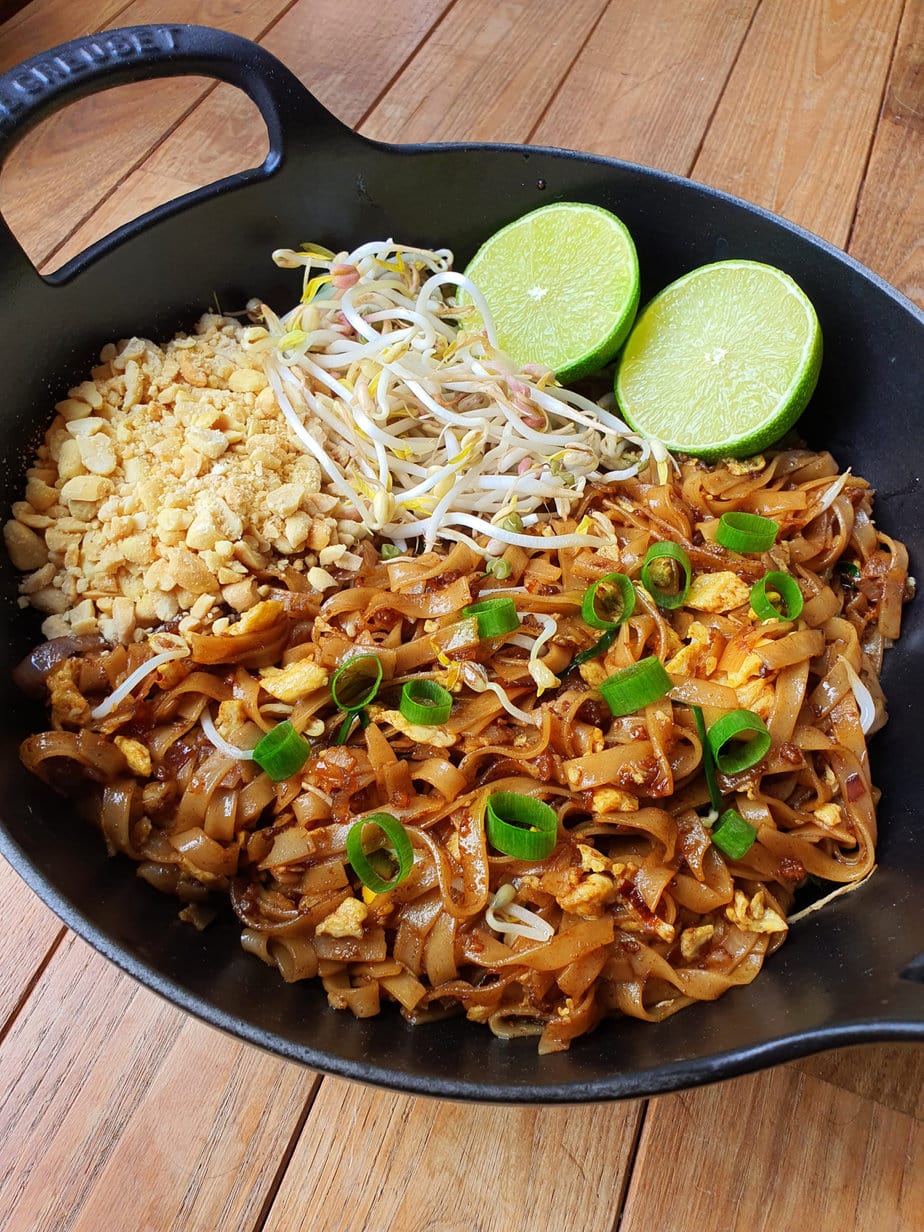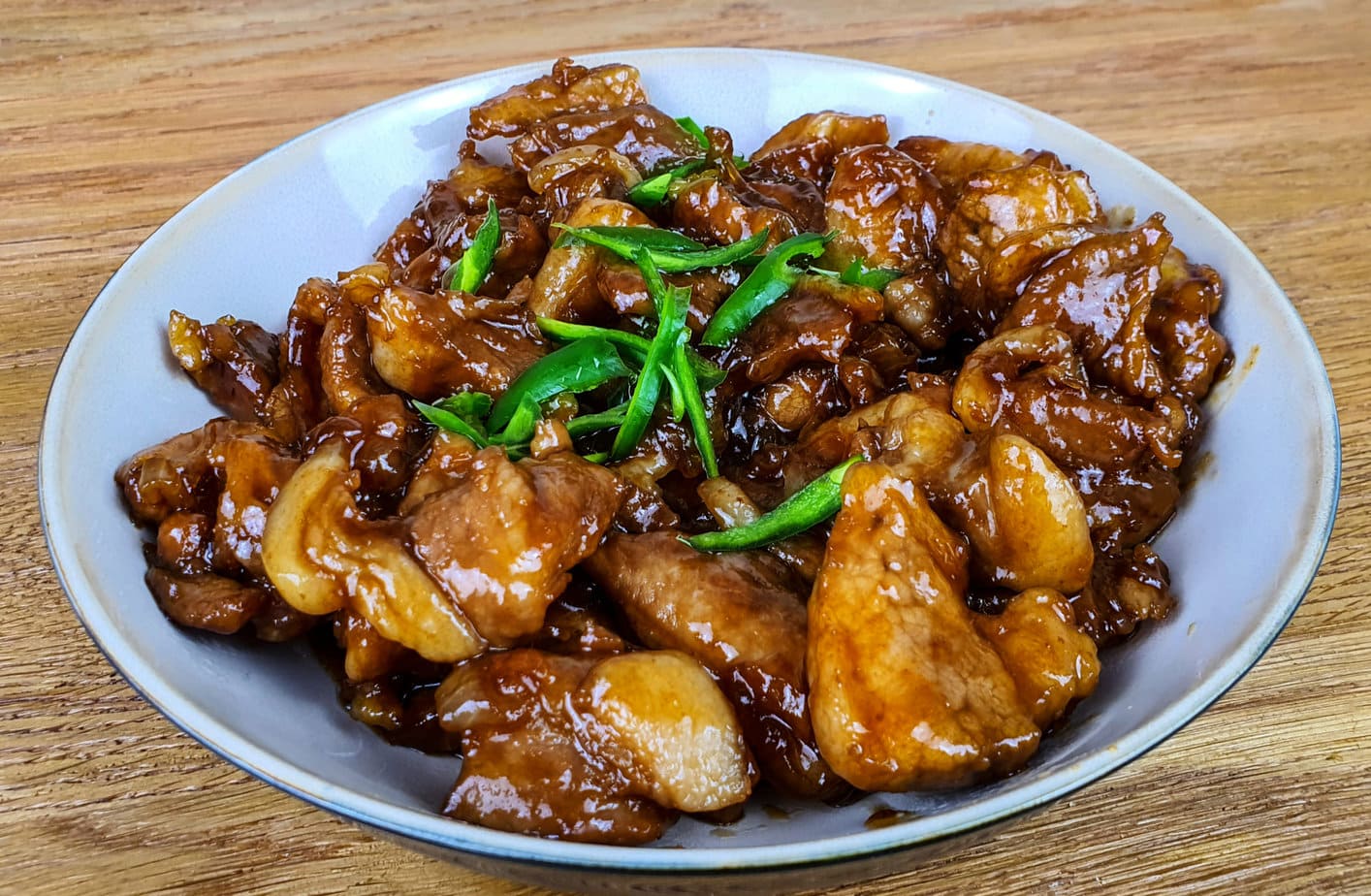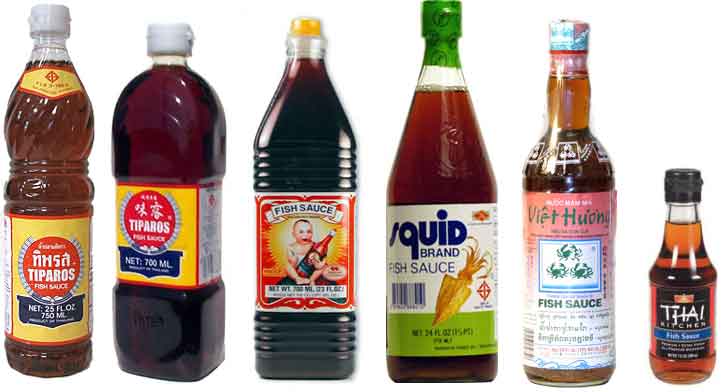Thai fish sauce is one of the basic ingredients not only of Thai cuisine, but also of much Asian cuisine. It has a rich translucent reddish-brown color and is added generously to almost all Thai dishes.
It is often used as a marinade for fish and meat, as well as a condiment, usually mixed with fresh chillies and lime juice.
If you’re traveling in Thailand, you may find it on restaurant tables like ketchup, where it’s usually added to meals in the same way that Americans use salt and pepper.

A little information
- Origin: Thailand
- You can find it: In Asian stores and some hypermarkets
- Taste: Salty fish
Origins and preparation of fish sauce
Good fish sauces are made from a mixture of fish and salt that has been fermented for up to two years. Traditionally, fatty fish such as anchovies are placed in a barrel with salt and slowly pressed to extract the liquid.
Anchovies are often used, although some fish sauces are also made with shrimp, octopus or mackerel. The basic ingredients of a good fish sauce are fish, water and salt. Sometimes sugars such as caramel or molasses are added, or roasted rice, but this is not necessary.

Fish sauce is called nam pla in Thailand, teuk trei in Cambodia, nam pa in Laos, patis in the Philippines and ngan bya yay in Burma. Despite its widespread use and primary identification with Asian cuisine, fish sauce is thought to date back to the ancient Greeks who fished along the Black Sea; the Romans called it garum.
Fish sauce vs. oyster sauce
It might be easy to confuse these two products because of their similarities, but they are really different products. Fish sauce is watery, clear and salty. Indeed, the broth in bitter cucumber soup is very clear for this reason.
Oyster sauce is sweeter, with a hint of salt, and very thick; it is made by reducing oyster extracts. Its aroma is not as strong as that of fish sauce.
Fish sauce applications
Fish sauce is one of those ingredients that adds indescribable flavor to a ton of Asian dishes, but once you start cooking with it more, you’ll be able to detect its presence straight away and develop a real sense for balancing its flavor in recipes. Thai green curry chicken uses it, as does my Thai crispy pork or Thai beef tartar.
For marinades, dips, stir-fries, etc. It’s hyper-versatile. It’s the key to nuoc mam sauce in Vietnamese cuisine, for example, where it’s combined with lime juice, sugar, garlic and chillies.

Water bindweed is often sautéed in fish sauce .
How does fish sauce taste?
Fish sauce tastes like salted fish, but in a good way. It is often used with lime juice and other ingredients, helping to balance the flavor and aroma of dishes. Since it’s not always used on its own, it doesn’t necessarily give a fishy taste to dishes, unless it’s used in excess.

It really adds a tasty umami element to everything. A drop or two, for example, is often added to noodle dishes as a condiment, at the table, to amplify the flavors a little.
Where can I buy fish sauce?
Most supermarkets sell fish sauce (look in the Asian section), but you can find imported brands sold in Asian food stores, particularly Chinese, Vietnamese or Thai.
Look for large bottles containing fish sauce and the ingredients indicated on the label (only fish extract, salt and water – other ingredients are not necessary). Ideally, it should be made in Thailand or Vietnam. You can also order fish sauce online from Amazon.
Vegetarian (and vegan) fish sauce does exist, and is often made with seaweed instead of fish. Many Vietnamese food supermarkets sell it.
However, another good substitute is Golden Mountain sauce (available in Asian stores), regular soy sauce or a combination of the two. The flavor won’t be exactly the same, but you’ll still get that umami taste from the glutamates present in both fish sauce and soy sauce.

How to store fish sauce?
Fish sauce keeps for 3 to 4 years at room temperature, opened or unopened.


